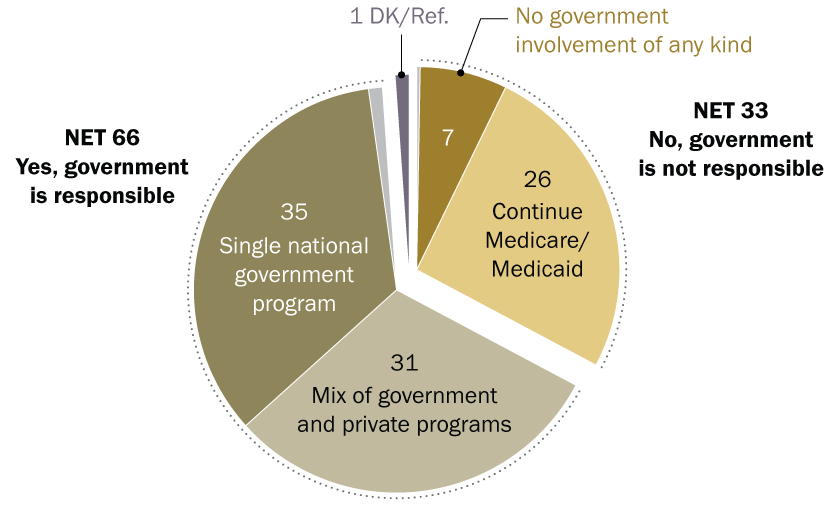Public Health Heroes: A Champion for Health Equity – National Foundation for Infectious Diseases

Organizational Profile and Mandate
Introduction
The National Foundation for Infectious Diseases (NFID), established in 1973, is an independent non-profit 501(c)(3) organization. Its primary mandate is the education and engagement of the public, various communities, and healthcare professionals regarding infectious diseases throughout the human lifespan. This mission is critical to advancing global public health and directly supports the achievement of several United Nations Sustainable Development Goals (SDGs).
Alignment with Sustainable Development Goals (SDGs)
Contribution to SDG 3: Good Health and Well-being
NFID’s core activities are fundamentally aligned with SDG 3, which aims to ensure healthy lives and promote well-being for all at all ages. The organization’s contributions are multifaceted:
- Target 3.3: Combat Communicable Diseases: By disseminating information on infectious diseases, NFID directly contributes to global efforts to end epidemics and combat communicable diseases. Education is a primary tool for prevention, early detection, and management, which are essential to reducing disease burden.
- Target 3.d: Strengthen Health Risk Management: The organization enhances national and global capacity for early warning, risk reduction, and management of health risks by providing reliable, evidence-based information to both healthcare professionals and the general public. An informed populace is better equipped to respond to health threats.
Contribution to SDG 4: Quality Education
NFID’s work also supports SDG 4 by providing specialized and accessible educational resources. This commitment to lifelong learning ensures that both the public and medical practitioners have access to current information on infectious diseases, fostering an educated and health-literate society.
Contribution to SDG 17: Partnerships for the Goals
As an organization that actively engages with communities and professional bodies, NFID exemplifies the collaborative approach championed by SDG 17. By fostering partnerships between the public and the healthcare sector, it strengthens the implementation of health-related goals.
Operational Activities and Disclaimers
Educational Platform
The organization’s website serves as a key educational platform. All information provided is intended for general informational purposes and is based on recommendations within the United States.
Professional Medical Advice Disclaimer
It is explicitly stated that the content provided by NFID is not a substitute for professional medical advice, diagnosis, or treatment. Individuals with health questions or concerns are directed to consult with a qualified healthcare professional.
Corporate Information
- Federal Employer Identification Number (EIN): 23-7198530
1. Which SDGs are addressed or connected to the issues highlighted in the article?
-
SDG 3: Good Health and Well-being
The article directly addresses this goal. The National Foundation for Infectious Diseases (NFID) states its mission is “educating and engaging the public, communities, and healthcare professionals about infectious diseases across the lifespan.” This educational focus is a fundamental component of promoting health, preventing disease, and ensuring well-being.
2. What specific targets under those SDGs can be identified based on the article’s content?
-
Target 3.3: By 2030, end the epidemics of AIDS, tuberculosis, malaria and neglected tropical diseases and combat hepatitis, water-borne diseases and other communicable diseases.
The NFID’s work to educate on “infectious diseases” directly supports the effort to combat communicable diseases. Public and professional education is a key strategy for disease prevention, control, and management, which is central to achieving this target.
-
Target 3.d: Strengthen the capacity of all countries, in particular developing countries, for early warning, risk reduction and management of national and global health risks.
By providing education to “the public and healthcare professionals,” the organization helps to strengthen the overall capacity for managing health risks. An informed public and well-educated healthcare workforce are essential for early detection, appropriate response, and reduction of the impact of infectious disease outbreaks.
3. Are there any indicators mentioned or implied in the article that can be used to measure progress towards the identified targets?
-
No explicit indicators are mentioned.
The article is a brief mission statement and does not contain quantitative data or specific metrics for measurement.
-
Implied Indicators
The article’s text implies that progress could be measured through the scope and effectiveness of its educational activities. Based on the mission “educating and engaging the public, communities, and healthcare professionals,” implied indicators could include:
- The number of educational programs and materials developed and disseminated.
- The reach of public engagement campaigns on infectious diseases.
- The number of healthcare professionals participating in educational initiatives.
4. Table of SDGs, Targets, and Indicators
| SDGs | Targets | Indicators |
|---|---|---|
| SDG 3: Good Health and Well-being |
3.3: Combat communicable diseases.
3.d: Strengthen capacity for early warning, risk reduction, and management of health risks. |
Implied: Scope and reach of educational initiatives aimed at the public and healthcare professionals regarding infectious diseases. |
Source: nfid.org

What is Your Reaction?
 Like
0
Like
0
 Dislike
0
Dislike
0
 Love
0
Love
0
 Funny
0
Funny
0
 Angry
0
Angry
0
 Sad
0
Sad
0
 Wow
0
Wow
0



















































.jpg.webp?itok=0ZsAnae9#)
























